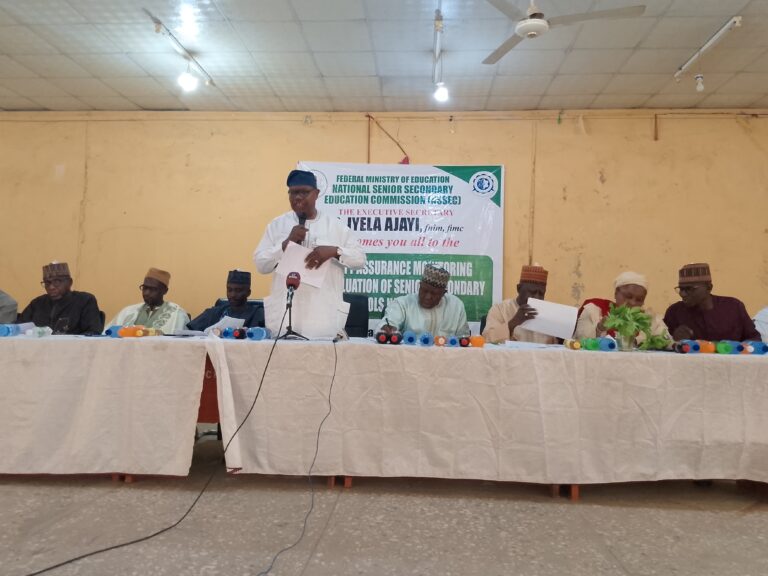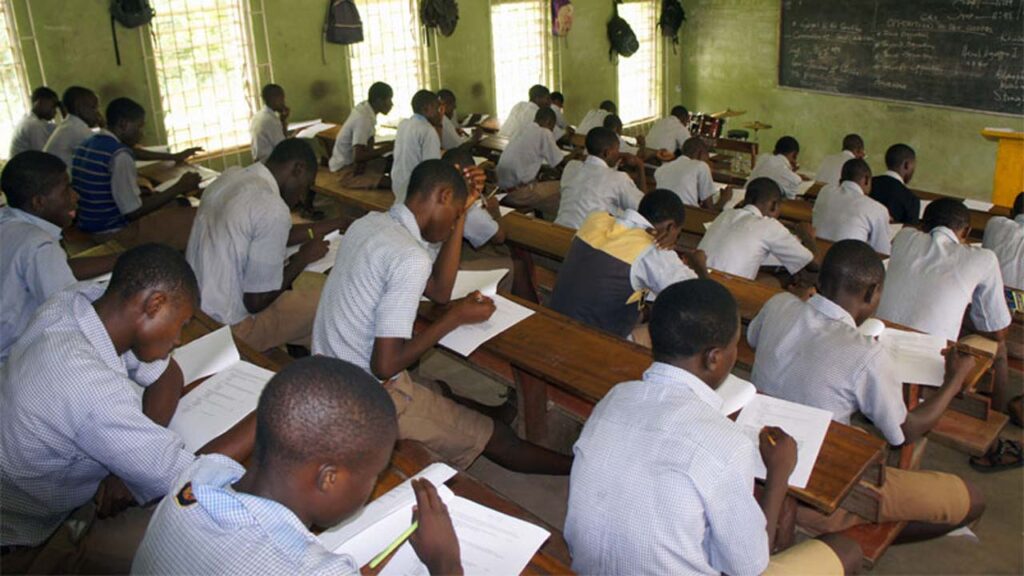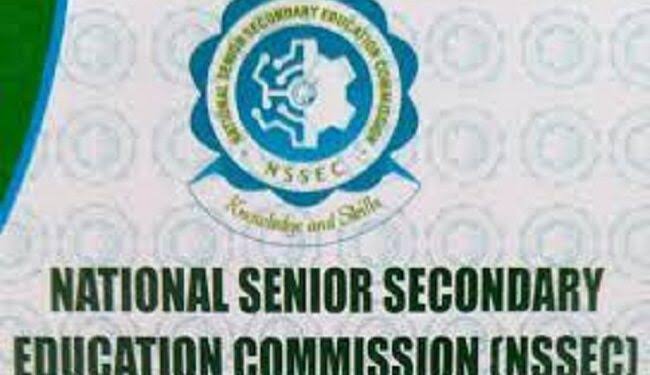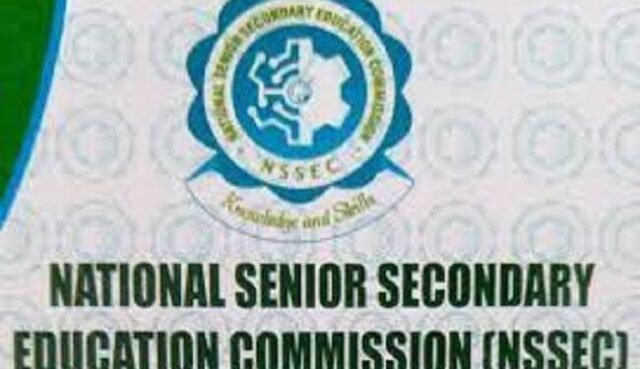In a bold and timely move, the National Senior Secondary Education Commission (NSSEC) has escalated its audit operations across Nigeria’s senior secondary schools. Over the past few weeks, the Commission has significantly ramped up inspection and review visits, aiming to ensure enhanced standards of teaching, infrastructure, and learning throughout the nation
Table of Contents

A Strategic Surge in Oversight
Under the leadership of Executive Secretary Dr. Iyela Ajayi, NSSEC’s intensified audit is not just a routine evaluation—it represents the commencement of a sweeping, high‑impact campaign. Inspections are no longer just checklists; they are deep dives into the heart of educational delivery, scrutinizing critical areas such as:
- Teacher qualifications and deployment
- Availability of essential learning materials and resources
- Quality and safety of classroom environments
- Teaching methodologies and student engagement practices
- Infrastructure and sanitation standards
This sharpened focus underscores the Commission’s determination to elevate Nigeria’s senior secondary education to new heights.
Nationwide Roll‑Out: From North to South
The audit operates at a national scale, covering schools in all 36 states and the Federal Capital Territory (FCT). Whether in urban centers or remote rural areas, NSSEC teams are conducting on‑site visits, gathering data, interviewing school leaders, and evaluating physical and academic readiness.
One noted highlight is the inclusion of diverse school types—public and private, technical and science schools, unity colleges, and more—ensuring the audit reflects Nigeria’s full educational landscape.

Drivers Behind the Audit Push
Several compelling factors are propelling NSSEC’s intensified efforts:
- Rapid Growth: The number of senior secondary institutions and student enrolment in Nigeria has surged in recent years. Ensuring consistent standards amid fast expansion has become urgent.
- Policy Implementation: With new Minimum Standards for Senior Secondary Schools established, NSSEC is now holding schools accountable, bridging compliance gaps with state boards and local government.
- Quality Assurance Imperative: Improving student outcomes in core subjects—especially English and Mathematics—has become a priority. Prior capacity‑building workshops emphasised pedagogy and learner centricity.
What Audits Reveal (And What Comes Next)
While results of the current nationwide audit are still being compiled, early observations point to familiar—and urgent—issues:
- Inadequate staffing: Some schools still operate with underqualified or insufficiently trained teachers.
- Deficient facilities: Numerous classrooms remain overcrowded and lacking in basic resources such as clean toilets, labs, libraries, and electricity.
- Weak governance: Inconsistent record-keeping and poor school management practices continue to plague the system.
NSSEC has communicated that intervention funds will soon be disbursed to schools requiring targeted support. These funds aim to address infrastructure deficits, upgrade teaching materials, and support teacher training. The Commission’s guidelines are now being circulated to ensure transparent access and effective utilisation.
Collaborative Efforts: Governance and Coordination
NSSEC’s audit isn’t a standalone initiative—it reflects months of strategic coordination:
- State Engagement: Dr. Ajayi and his team have reached out to governors and state boards to align efforts, promote compliance, and secure cooperation for interventions across states.
- Stakeholder Involvement: Civil society groups, education-focused NGOs, national teacher unions, and development agencies are already collaborating with NSSEC for joint training, curriculum validation workshops, and awareness campaigns.
- Capacity Building: Reflecting earlier successes, NSSEC has supported training for English and Mathematics teachers aimed at improving pedagogical techniques nationwide.
Strengthening Governance Machinery
NSSEC is also fortifying its internal systems to ensure the audit’s impact is sustained:
- The NSSEC Monitoring & Evaluation Manual, now officially in use, standardises how schools are assessed and audited nationwide.
- An internal performance tracking system keeps educators and administrators accountable, with quarterly reviews monitoring progress and identifying improvement areas.
- Advisory and audit committees oversee audit integrity and policy implementation, promoting openness and accountability.
These structural enhancements are setting the stage for a more responsive and transparent regulatory body.
Policy Alignment and the Road Ahead
The audit initiative forms part of NSSEC’s broader policy architecture:
- Minimum Standards Enforcement: NSSEC’s long‑cherished draft for school standards is now being reviewed and enforced through the audit process.
- Gender‑Focused and Inclusive Education: Earlier in 2025, NSSEC convened workshops focused on inclusive classrooms, reinforcing gender sensitivity and safe learning environments. The current audits aim to assess implementation at the grassroots level.
- Preparation for Curriculum Renewal: Audit findings will feed into curriculum review and validation exercises, especially in collaboration with the Nigerian Educational Research and Development Commission (NERDC).
- Resource Mobilisation: NSSEC is in advanced discussions with international partners—including UNESCO, World Bank, USAID, UNICEF, and others—to supplement intervention funds and technical support.
The Human Story: Commitment and Challenges
At the heart of NSSEC’s intensified audit is the vision and leadership of Dr. Iyela Ajayi, whose reformist agenda has energised the Commission since his appointment ℅ in late 2023. Stakeholders describe him as a ‘transformative force’ who has brought structure, accountability, and momentum to what was previously a dormant agency.
Yet, challenges remain. Funding constraints persist, delaying critical interventions in underserved schools. Some states yet to establish the mandated State Senior Secondary Education Boards remain hard to reach. And in several schools, resistance to change—especially in areas of governance—still slows progress.

Conclusion
By intensifying its nationwide audit, NSSEC is signalling a watershed moment in Nigeria’s secondary education trajectory. From Lagos to Sokoto, classrooms are now under scrutiny, and schools are being held to account.
If properly implemented, the interventions spurred by this audit could be transformative, elevating teaching standards, improving learning outcomes, and narrowing equity gaps in education delivery. However, success hinges on consistent funding, state buy‑in, and enduring political will.
As NSSEC continues audits and disburses intervention funds, it’s clear this is more than just a periodic review—it’s a foundational shift toward professionalised oversight, strategic investments, and inclusive policies that lift the quality of senior secondary education nationwide
Join Our Social Media Channels:
WhatsApp: NaijaEyes
Facebook: NaijaEyes
Twitter: NaijaEyes
Instagram: NaijaEyes
TikTok: NaijaEyes
READ THE LATEST EDUCATION NEWS








































